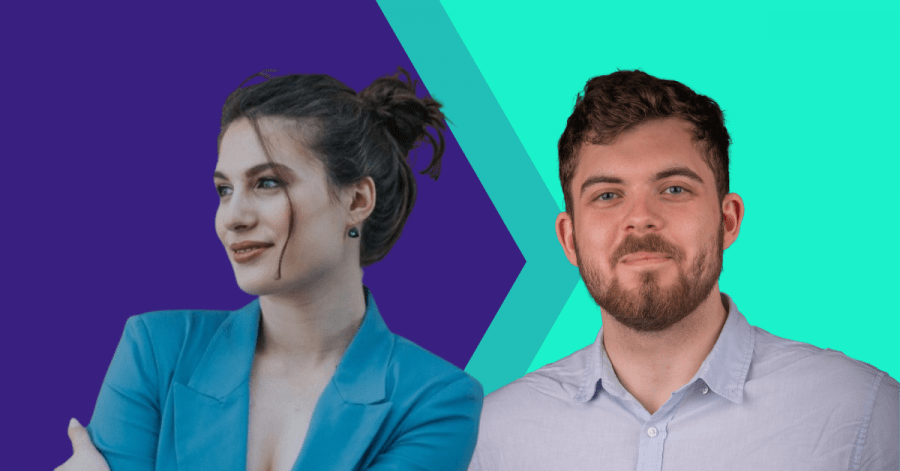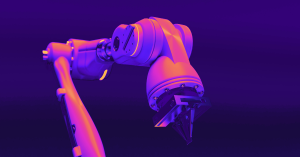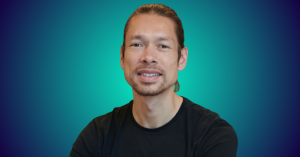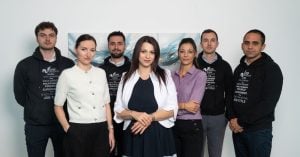In our time immersive experiences are the preferred way to do everything from watching a movie to playing video games, but we rarely think about what goes on “behind the stage”. It turns out that artists working in the 3D video production industry face a lot of challenges daily but the Greek-founded startup Kaedim, shows they can be alleviated with technology and AI algorithms.
Kaedim is a Bristol University startup spin-off that leverages the power of AI systems to make 3D asset creation frictionless, fast and accessible. Founded in 2019 by Konstantina Psoma (CEO) and Roman Bromidge (CTO), Kaedim’s product is an AI-powered platform that automatically creates clean, ready-to-use 3D assets from 2D images in seconds. The Gen Z founders of the startup developed their solution with the vision to make 3D creativity frictionless and accelerate 3D creative workflows by automating repetitive tasks.
We met with Konstantina Psoma, the Greek co-founder of Kaedim, to find out more about how deep tech can help solve industry challenges, what traction Kaedim has gained so far, and how the team expects to change the 3D development sector in the future.
On a mission to solve real and niche problems
It currently takes around 2.5 years for a traditional 2D movie to be created and anywhere between 5 and 12 years for a 3D video game. Moreover, she points out that only a couple of digital 3D assets pieces might cost as much as $14K to produce. “Our technology has the potential to find the perfect balance between slashing the development times and maintaining the same, or even better, quality of production that is expected from 3D artists,” she says.
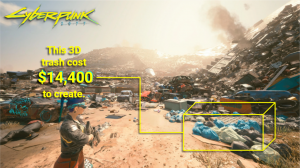
Psoma highlights that demand for 3D assets is accelerated across industries from AR/VR to 3D marketing and from construction to healthcare, but it still remains incredibly expensive for creators to develop such assets. This is because existing processes and methods are very expensive and cannot keep up with the growing demand. “Basically the production process scales only by hiring more designers to develop the asset. An additional drawback is that creators have to start from scratch each time when they need to make a new asset or even do an iteration of an existing asset,” she explains.
Additionally, existing approaches are incredibly complex, labor-intensive, and time-consuming. For example, photogrammetry, a technology that uses 2D pictures taken from different angles to derive a 3D asset, can take many hours and cost thousands of dollars with the object also needing manual cleaning in the end as well.
How does Kaedim change the game for people in 3D creation?
Game creators are one of the groups that are most affected by these challenges. The main problems that Kaedim solves for game creators are that it accelerates the 3D asset modeling process by removing the first 80% repetitive and gives artists the ability to only focus on the final, creative 20% of the process. The platform also allows for rapid prototyping and iteration with their AI models providing 3D assets in seconds and lowers the barriers to entry for people starting their journey in 3D asset creation. As a result, Kaedim creates space for diversity and inclusivity in the sector.
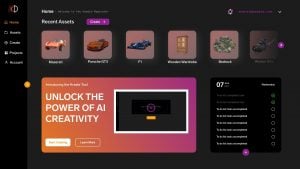
The solution of Kaedim works in the following way: First, the user uploads as little as a single 2D image as input. Then, the AI algorithms take over to create a 3D asset in less than 3 seconds. Finally, the assets go through a Quality Assurance step with Kaedim’s engineers and the user gets their clean and ready-to-use asset in minutes from uploading their reference image. Creators are then able to decide whether the asset needs more iterations or if they are satisfied with the final result and they are ready to download to continue with the pipeline.
A university project turned into a business
The idea for creating Kaedim was born out of a project that Konstantina Psoma and Roman Bromidge worked on during their 3rd year of studying Computer Science with Innovation at the University of Bristol.
Although enrolled in a highly technical degree, both founders decided to put a creative twist in their studies by taking units such as 3D modeling, Character and Set Design, and 3D Animation. “We were given the task to choose a physical space in Bristol and re-create it into 3D software. People were choosing small coffee shops around Bristol or a room from their workspace but I was crazy at this point and decided to model one of Bristol’s cathedrals. It meant that I spent the 3 months until the deadline working day and night to be able to finish the project. I still regret my ambition to model something as big,” Psoma explains.
As she was working on her assignment related to creating a 3D recreation of one of Bristol’s cathedrals, she realized how difficult and time-consuming it is to be creating 3D experiences. With this in mind, Bromidge and Psoma decided to embark on a journey to validate their assumptions regarding the problem by speaking to all game developer studios in the UK during summer 2019. They gathered insights around the pipelines, pain points, tools, and artists in the industry and the boldest one being that in our era there is no AI tool to help accelerate these artists in such a labor-intensive process. In September 2020 they started their master’s year having decided to do a joint dissertation on Deep Learning for 3D Reconstruction and following their early success with local studios including Oscar-winning Aardman Animations they founded Kaedim in February 2020.
Only a couple of months after, the founders also won the University of Bristol’s New Enterprise Competition, which was followed by a $200K pre-seed round with Chris Kingsley, co-founder, and CTO of Rebellion. This was followed by another funding round in the summer this year which includes amongst others, Accel, Matt Robinson, CEO of the proptech company Nested, Tom Blomfield, President of the digital bank platform Monzo, Alan Rutledge, Ian Hogarth (Songkick), Mandeep Singh (Trouva), Rika Christanto (Ontruck).
The future of Kaedim and 3D asset creation
During the past year, the team which currently consists of 7 people, was focused on running trials with pilot users including Rebellion, Aardman Animations, Quell (YC W21), and nine other companies across the entertainment and media industries. They have also gathered an Advisory Board with executives across the video games, software, and media industries including Chris Kingsley, and Shawn Layden, Ex-Chairman of PlayStation.
A few days ago, Kaedim was accepted into the AI stream of the Creative Destruction Lab program – a nine-month accelerator of Oxford which aims to boost the commercialization efforts of tech founders.
The short-term plans of Kaedim include finishing their beta trials, making a soft launch of the product, and onboarding more customers. The team is also in the process of finalizing their seed round and expanding further to meet the growing demand. Psoma also highlights that Kaedim will be focusing on exploring its potential to expand across more verticals of the 3D modeling industry and iterate its market position on the US market.
“We are big believers of the metaverse and when the time comes we want the number of people that are able to only create 2D assets today (snap a photo or take a video with their cameras) to be able to be making 3D experiences with the same toolsets, without needing to be re-trained. As a result, the metaverse will be a democratized experience, with everyone contributing and with a lot of diversity and inclusion,” Psoma shares.

